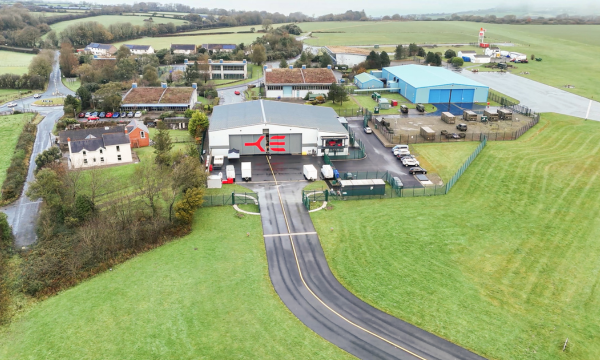The Welsh Government's Draft budget for the upcoming year reveals a challenging financial landscape. Budget documents indicate that every minister has had to make budget reductions, with all departments, except health, experiencing a decrease in their budgets.
This includes finance and local government, despite councils receiving an additional 1.5% in real terms.
In total, the budget is worth £1.3 billion less in real terms compared to its 2021 allocation. The Welsh Government attributes this shortfall to what they consider an inadequate funding settlement from the UK Government.
Several key areas are facing significant budget cuts, including Business Wales, which will see its budget decrease from £26.6 million to £20.9 million. Tech Valleys and Export, Trade, and Inward Investment will also experience reductions.
Moreover, sectors such as the National Museum and Arts Council Wales are seeing their cash support diminish by approximately 10%, while Cadw, responsible for safeguarding historic places in Wales, will face a budget cut exceeding 20%.
The rural affairs sector is taking the most substantial hit, with the day-to-day budget declining by more than a tenth after inflation. Although the basic payment scheme for farmers is safeguarded, business support for the sector faces reductions, with a withdrawal of £40 million from the rural investment schemes.
Additionally, businesses will feel the impact of a 5% increase in business rates, while the retail, leisure, and hospitality sectors will see their reliefs decrease from 75% to 40%, marking a shift in support policies for these sectors, which were hard-hit during the pandemic, while the 75% relief rate in England remains unchanged.
Due to a reduction in funding by £5 million, the Welsh government will fall short of its manifesto commitment to deliver 125,000 apprenticeships during the next Senedd term by 15,000.
Changes across departments with real terms impact:
- Health and social services: Up 2.63%
- Finance and local government: Down 1.73%
- Education and Welsh language: Down 0.76%
- Climate change: Down 4.79%
- Economy: Down 1.38%
- Rural affairs: Down 10.47%
- Social justice: Down 4.76%
- Central service and administration: Down 1.39%
The Welsh Government's £23.5bn budget comes from four main sources
- £18.6bn from the UK government
- £3.5bn from Welsh rates of income tax
- £1.1bn from business rates
- £280m from devolved taxes on land transactions and landfill disposal
To read the full report – https://www.gov.wales/sites/default/files/publications/2023-12/2024-2025-draft-budget-narrative.pdf
Ian Price, Director, CBI Wales commented:
“Businesses recognise that tough decisions were needed in the draft Budget, and it’s right the government prioritised protecting the vulnerable and others most in need across society.
“The proposals designed to boost the number of apprenticeships and mainstream employability are a positive step. It is critical that funding should be maintained for apprenticeships and flexibility should be maximised to allow employers, government and providers to equip young people with the skills they need.
“With business concerned about lack of funding in colleges for apprenticeship training across Wales, we would like firms that qualify for the Apprenticeship Levy in England to be permitted to spend more of their funds developing a skilled Welsh workforce.”
With the news that £5m of apprenticeship funding has been moved and £19m from employability and skills budgets Richard Selby, director and co-founder, Pro Steel Engineering said:
“These level of cuts, which could mean 10,000 fewer apprenticeships in Wales, will only be felt negatively across employers and students/apprentices. Vaughan Gething who is running for the First Minister role said one of his priorities for the economy in Wales is “A platform for young people, fair work, skills, and success: backing young people to achieve the ambitious futures in Wales. Prioritising their skills and creativity.” Right now, we need to be protecting, supporting, and inspiring our next generation of learners, as reducing these opportunities so significantly will only adversely affect their ambitions and career paths, particularly those in the lowest socio-economic groups. Perhaps now, we need to take a more collaborative and innovative approach with the private sector to mitigate these losses long-term.“










